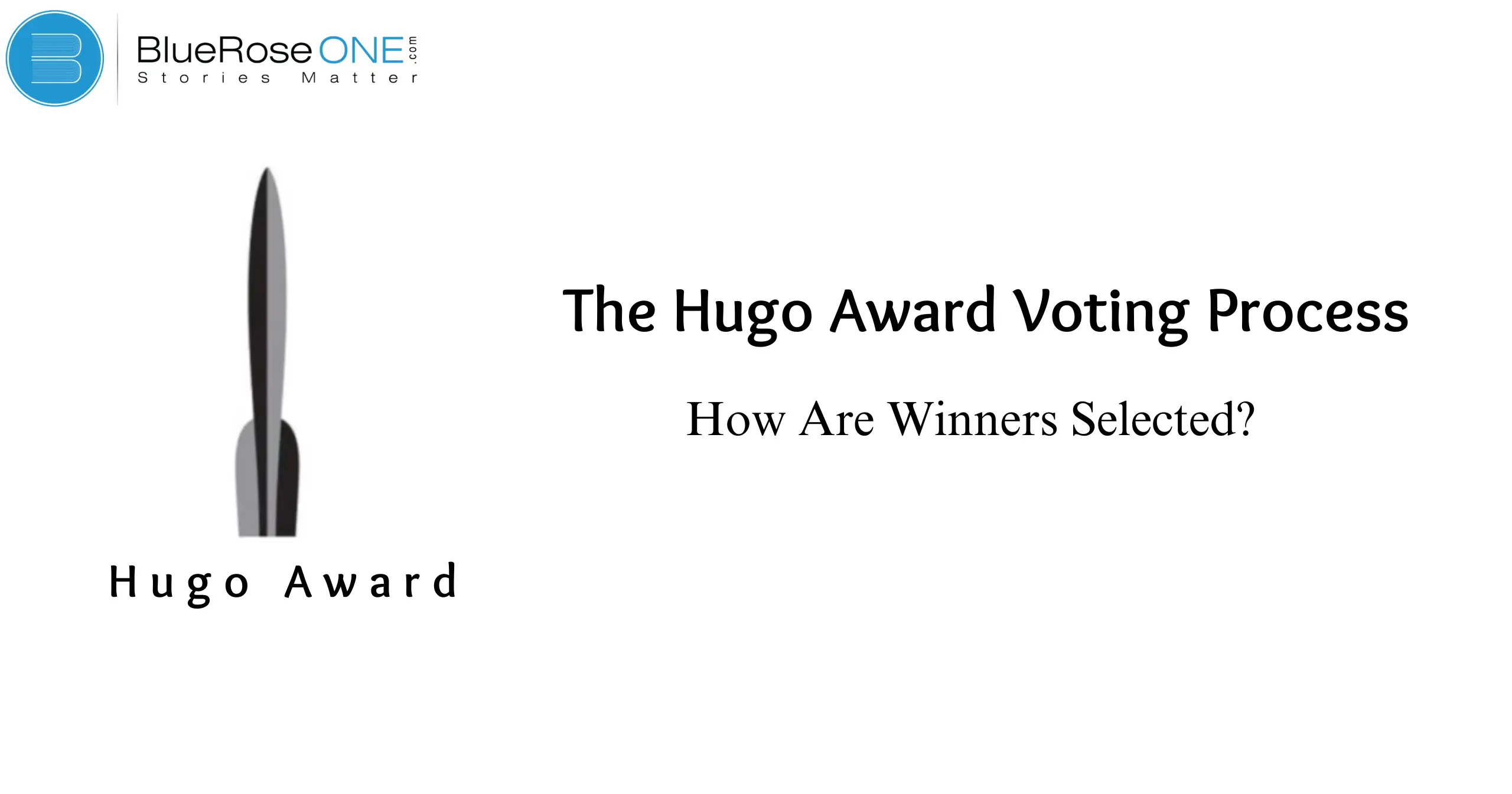One of the most important awards in the science fiction and fantasy fields is the Hugo Award. These honors recognise the best works in these categories and honor notable contributions to fan art, television, film, and literature.
The Hugo Awards stand out not only for their lengthy history but also for their inclusive voting mechanism, which incorporates fans in the process.
What steps must a nominee take to win, and how does this voting process actually operate? Let’s explore the exciting realm of Hugo Award voting and learn about the procedures used to choose the winners.
What Are the Hugo Awards?
Hugo Gernsback, the creator of “Amazing Stories,” is honored with the Hugo Awards, which have been given annually since 1953 to honor outstanding works of science fiction and fantasy.
These awards highlight the diversity and inventiveness within the genres with a wide number of categories, including Best Novel, Best Short Story, Best Dramatic Presentation, and more.
History and Origins of the Hugo Awards
The history of the Hugo Awards dates back to the early years of American science fiction fandom. The awards have changed over time to match shifts in the genre and its fan base, continuing to hold its prominence as an important indicator of success in speculative fiction.
You may also read: Top 10 Ebook Selling Platforms for Authors in 2025
Categories Included in the Hugo Awards
Numerous categories are covered by the Hugo Awards, enabling a broad recognition of all kinds of works. Among the categories are Best Series, Best Novel, Best Novella, Best Novelette, and Best Short Story.
Because of this diversity, the awards are able to recognise both well-established and up-and-coming voices in the industry.
The World Science Fiction Society (WSFS)
The Hugo Awards are administered by the World Science Fiction Society (WSFS), a non-profit organization. Worldcon, the yearly World Science Fiction Convention where the Hugo Awards are given out, is organized by the WSFS.
Role of the WSFS in the Hugo Awards
The WSFS is in charge of establishing the regulations and requirements for the Hugo Awards. Additionally, it makes voting easier and guarantees that the prizes are given out in a clear and equitable manner.
The WSFS is run by its members, who take part in yearly meetings to debate and decide on suggested modifications to the awards procedure.
Membership Requirements for Voting
One must be a member of the Worldcon, either present or past, to cast a vote for the Hugo Awards. Memberships come in two varieties: sponsoring and attending.
While supporting members participate virtually, attending members can do so in person. Voting is available to both categories of members, giving fans worldwide a chance to decide who will take home the coveted Hugo Awards.
You may also read: Book Review: Student Politics of IIT Madras by Shushant Jaswal
Eligibility for the Hugo Awards
Works published or appearing for the first time in the preceding calendar year are eligible for a Hugo Award. Numerous categories, including best novel, short story, and fanzine, are awarded Hugo Awards.
Hugo Award nominations and votes are open to all World Science Fiction Society (WSFS) members. This makes it possible for a diverse group of science fiction and fantasy readers to vote for the winners.
Criteria for Works to Be Eligible for Nomination
A work must have been published in the preceding calendar year and fit into one of the Hugo Award categories, such as Best Novel, Best Novella, or Best Short Story, in order to be nominated for the prize.
The work needs to be in English and be a work of science fiction or fantasy. As long as the pieces fit the requirements and significantly influence the genre, both professional and amateur works are acceptable.
You may also like: What is Book Index? Everything You Need to Know
You may also like: 100+ Adjectives That Start with C (With Definitions & Examples)
Understanding the Eligibility Year
The works that are eligible for nomination depend heavily on the eligibility year. It begins on January 1 and ends on December 31 of the year prior. For any work to be eligible for nomination the following year, it must have been published during this time.
How Nominations Work
The nomination process for the Hugo Awards is a key part of what makes them unique. It allows fans to have a direct impact on which works are considered for the awards.
The Nomination Process Explained
Members of the World Science Fiction Convention (Worldcon) are able to submit nominations for their favorite works for the Hugo Award. Up to five works may be nominated in each category by each qualified member.
The official finalists are the pieces that have received the most nominations. This procedure guarantees that a diverse array of perspectives are considered when choosing the finest works of science fiction and fantasy. The Hugo Award nominees are then put to a vote, which finally determines the winners.
How Members Submit Nominations
Nominees for the Hugo Award must be members of the World Science Fiction Society (WSFS). Each member may submit up to five nominations for their favorite qualifying works from the previous year’s publications in each category.
Nominations for awards are usually accepted early in the year, giving members a chance to honor exceptional accomplishments in fantasy and science fiction. The works that receive the most nominations advance to the Hugo Award’s final voting round.
You may also read: His Dark Materials Series (Review) 2025: A Timeless Fantasy Saga by Philip Pullman
Nomination Period and Ballot
The nomination period is a critical time for the Hugo Awards, as it sets the stage for which works will be considered for the final ballot.
Timeline for the Nomination Period
Hugo Award nominations typically open in January and go through March. Members of the World Science Fiction Society (WSFS) who meet the eligibility requirements may submit nominations for a variety of categories at this time.
The objective is to honor the best fantasy and science fiction literature. Voting to determine the winners takes place after the nomination period concludes, when the ballots are counted and the final candidates are declared.
Understanding the Final Ballot Process
The WSFS tallies the nominations and produces the final ballot following the conclusion of the nomination period. The top five pieces in each category are normally included in this vote,
however there may be more or less entries depending on ties or other circumstances. The members are then given the opportunity to vote on the final ballot.
You may also read: What is a Literary Agent? and How Can They Help You Publish Your Story?
The Voting Process
Voting for the Hugo Awards is done using a preferential voting system, which allows members to rank their choices in each category.
How Votes Are Cast for the Final Ballot
Members of the WSFS are able to vote after the final ballot is made available. Members assign a ranking of one to their favorite work, with the nominees in each category ranked in order of choice.
This system makes sure that the membership’s overall preferences are reflected in the final decision.
The Preferential Voting System Explained
Each member’s vote counts for both their first choice and any subsequent choices they make in the event that their first option is eliminated under the preferential voting system.
Because this method considers the range of member preferences instead of just the most popular option, it guarantees a fair and representative result.
The Role of Fans in Voting
From the nomination phase to the final voting, fans are very important to the Hugo Awards. Their fervor and excitement contribute to the awards’ development and guarantee that the themes of science fiction and fantasy are represented.
How Fan Involvement Influences the Process
Hugo Awards are sometimes referred to as being “for the fans, by the fans,” and the voting method reflects this philosophy. Supporters are urged to actively participate by discussing and debating the nominees in addition to casting their votes. Through this involvement, the awards process is made more lively and dynamic, better reflecting the interests of the community.
The Importance of Fan Engagement
Participation from fans is essential to the Hugo Awards’ success. It contributes to making sure the awards are still meaningful and honor the best in fantasy and science fiction.
Fans contribute to maintaining the Hugo heritage and making sure they continue to be an important component of the genre by voting.
You may also like: The Rise of Shakti by Megha Dinesh: Book Review
Counting the Votes
The crucial work of counting the votes is taken on by the WSFS after they have all been cast. This procedure is clear and intended to guarantee precision.
The Process of Tallying Votes
The preferential voting procedure, which necessitates several rounds of counting, is used to total votes. The piece that receives the fewest votes at the end of each round is eliminated, and the votes are then divided among the remaining pieces according to the voters’ subsequent choices. Until one piece receives the majority of the votes, this process is repeated.
How the Winner Is Determined
The piece that obtains the majority of votes in the last round of voting is declared the winner in each category. This process guarantees that the winning piece reflects the community’s opinion as a whole and has widespread support among the membership.
Announcement of Winners
The conclusion of months of voting and excitement is the Hugo Award winners announcement, which is a much awaited event.
When and Where Winners Are Announced
The Hugo Award ceremony, which is held during Worldcon, announces the winners. One of the convention’s highlights, this event attracts visitors from all over the world and receives a lot of media coverage.
The Significance of the Hugo Award Ceremony
The Hugo Awards ceremony is a celebration of the science fiction and fantasy genre, not just an awards show. It offers a chance for readers, writers, and artists to unite and celebrate their mutual passion for the genre.
You may also read: Where the Red Fern Grows: Book Summary & Themes
Past Winners and Their Impact
| Novel | Some Desperate Glory | Emily Tesh |
| Novella | Thornhedge | T. Kingfisher |
| Short Story | Better Living Through Algorithms | Naomi Kritzer |
| Novelette | The Year Without Sunshine | Naomi Kritzer |
Controversies and Changes in the Voting Process
Like any major awards process, the Hugo Awards have experienced their share of controversies. These incidents have often sparked discussions about the nature of the awards and have led to changes in the voting process.
Notable Controversies in the History of the Hugo Awards
A major controversy in the past few years involved the “Sad Puppies” campaign, which sought to sway the nomination process in favor of specific books. This incident brought attention to the necessity of fairness and transparency in the awards process and resulted in modifications to the nominations procedure.
Recent Changes to the Voting Process
The World Swordplay Foundation (WSFS) has modified the nomination and voting methods, added new categories, and altered the voting process in reaction to multiple scandals. The Hugo Awards are still fair and reflect the interests of the community thanks to these modifications.
How to Participate in Hugo Award Voting
For those interested in participating in the Hugo Award voting process, the steps are relatively straightforward.
Steps to Become Eligible to Vote
You must be a member of the current or past Worldcon in order to cast a ballot. You can vote and make nominations for the Hugo Awards by purchasing a membership online.
How to Get Involved in the Hugo Awards Community
There are other ways to participate in the Hugo Awards community outside of voting. Getting involved in online forums, attending Worldcon, and interacting with other fans are all excellent methods to join this active community.
Why the Hugo Awards Matter
The Hugo Awards are more than just a collection of medals; they honor the best works in science fiction and fantasy literature and serve as a celebration of the genres.
The Cultural Significance of the Hugo Awards
Science fiction and fantasy are genres that are elevated and made more widely known thanks in large part to the Hugo Awards. They also act as a standard for excellence, motivating writers and other artists to pursue greatness in their output.
Their Role in Promoting Science Fiction and Fantasy
The Hugo Awards encourage science fiction and fantasy by recognising exceptional works, which in turn motivates fans to delve deeper into the genres and authors to push the envelope of what is deemed possible.
Conclusion
The science fiction and fantasy community’s passion and enthusiasm are reflected in the Hugo Award voting process, which is an intriguing and inclusive trip.
Fans who are passionate about the genres and the works they like are the ones that drive the process from the nominations to the final vote.
We may recognise the importance of the Hugo Awards and their influence on the speculative fiction community by comprehending the workings of this process.
















